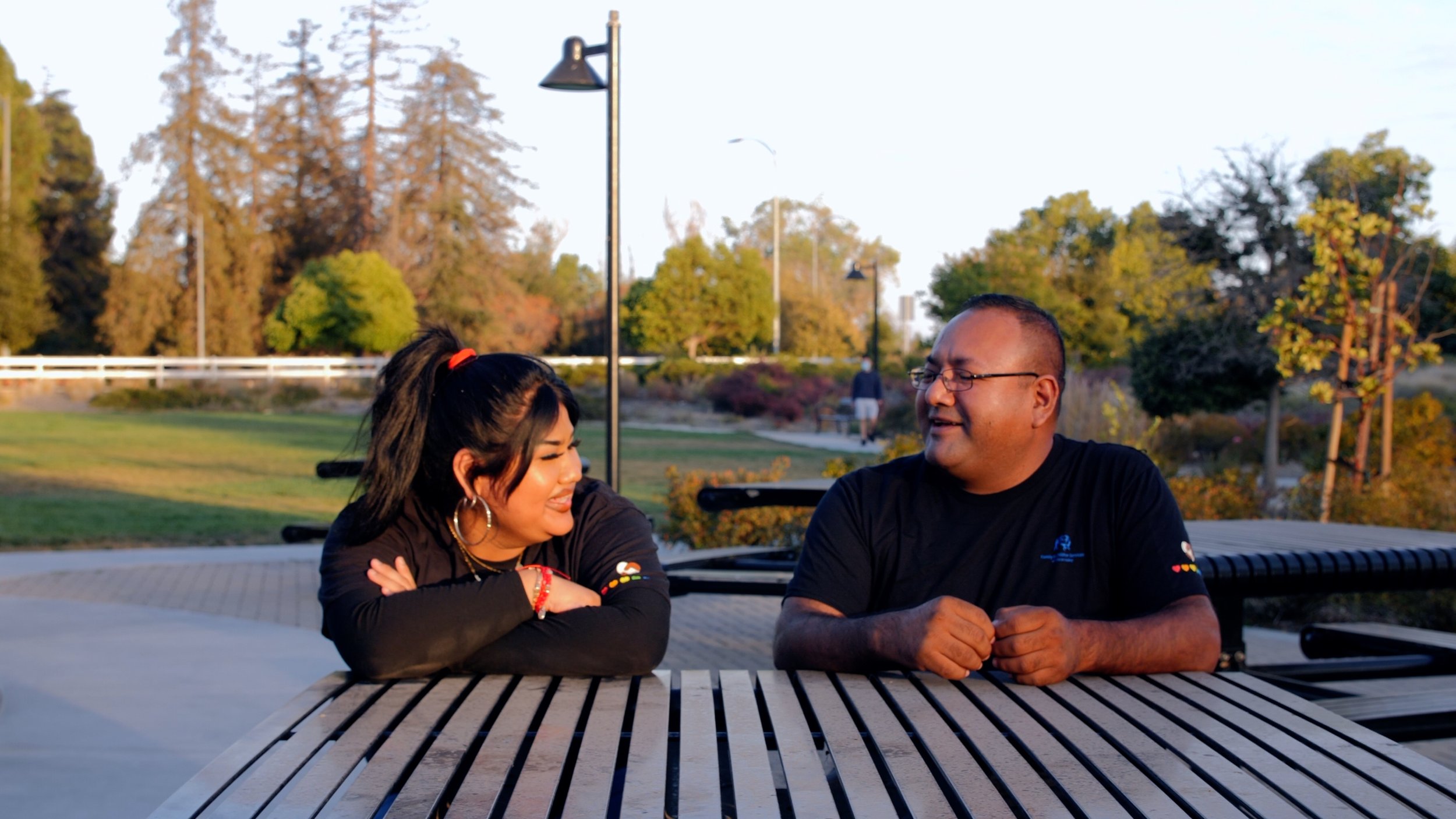Many job seekers often hear the same expression from people who help them search for a new opportunity, “I’ve been in your shoes before.” But few resonate those sentiments the way Thaddius Mueller can when an applicant’s life experiences include potential employment roadblocks like mental illness, addiction, and past incarceration. Mueller offers a simple approach when it comes to matching jobs with clients, “I try to find out what they want to do. Because I don’t want to just find them a job. Because if you just find a job, it doesn’t mean you’re going to be happy.”
Before becoming a Peer Support Specialist in Caminar’s Jobs Plus program in Solano County earlier this year, Mueller endured a treacherous path. As a child, he was sexually abused and he began consuming alcohol around the time he started elementary school. Ongoing abuse in his home led to him being placed in foster care. Trouble escalated for Mueller during his teen years, resulting in being sentenced to the California Youth Authority and, ultimately, the adult prison system.
Now the 45-year-old Solano County native chooses to focus on where he is headed next, by enriching the future for others whose paths resemble his.
“If you find something you like to do, you’ll never work another day in your life,” Mueller says, “Because if you enjoy what you are doing, you’re not working, you’re having fun! When I work, I don’t feel I am doing any work at all. When I go to my job in the morning, I want to be happy when I arrive to work, and I feel good when I leave work. Or I might feel a little disappointed that I had to leave work.”
“Our Jobs Plus program connects people who would otherwise be excluded from the workplace with meaningful, paid jobs that offer hope and a sense of accomplishment,” says Caminar CEO Mark Cloutier.
Mueller also believes his current role shepherding the job application process for others as thanking those who provided him with similar guidance. “I enjoy being of service, giving back of what was so freely given to me by others. People didn’t have to give me nothing! And they chose to pour out their heart and support to me when I was down and struggling and meeting barriers. I like to see people advance.”
“We know having a purpose in life is really a cornerstone of wellness and recovery. People don’t get into recovery just to have the cravings and dysfunction that come from addiction just go away,” says Cloutier. “People get into recovery because they want to have a fuller life. They want to have enjoyable relationships. They want to be able to engage in employment. They want to be able to finish school.”
When reflecting on his role coaching others to find jobs, Mueller often credits a major player on his path, Roxanne “Roxy” Medearis. “Every time I had a job, she gave me daily affirmations and gave me pats on the back saying ‘you’re doing a good job.’ Everybody needs to hear they’re doing a good job sometimes,” Mueller described.
Medearis first met Mueller when he joined the Jobs Plus program by taking career classes and encouraged him to expand his opportunities by attending Jobs Club classes. “He did not want to hear anything I had to say. And I let him know the more you come to Jobs Club the more you’ll learn and the more you’ll be open and employable,” Medearis reflected.
Medearis shared how clients like Mueller can face additional hurdles when it comes to satisfying the basic requirements for job applications. “It was difficult to find his high school diploma to get him employed, but we surpassed that.” Medearis also pointed out people whose life circumstances have forced them to move frequently and sometimes abruptly need help securing documents like Social Security cards and government-issued identification. Lacking those credentials can delay a candidate’s hiring by several weeks under normal circumstances. But with COVID-19, that wait has stretched to three months in some cases, because many local Social Security offices are closed.
With the needed documents in hand for Mueller, Medearis witnessed a transformation after he completed court-ordered probation and finished a series of classes, including a program provided by Narcotics Anonymous. “His demeanor changed. It lit up. I saw a spark inside of him, that he was motivated. He could see the positive outcome during all of that.”
Mueller worked a series of temporary jobs including a stint in a warehouse. But a shoulder injury and ensuing surgery forced Mueller to quit and search for another opportunity. Where others might have seen a setback, Medearis injected hope into the situation, telling Mueller, “It just wasn’t meant for you to get that job. You will get something better after you heal.”
Mueller then focused his ambitions on becoming a Peer Support Specialist. He completed training administered by Solano County and satisfied other steps in the selection process.
And despite his series of early setbacks, Mueller praises Medearis and her commitment to his success and recovery, “She always gave me good words of wisdom and I really love her for it.”
“I really love what I do. And I want for every person who walks into my office to feel that. To feel like, ‘Hey I’m here, I believe in you. I don’t care what you went through. I believe in you! You can do it!’” says Medearis on her mission to help others rise.
Now Medearis and Mueller aim to guide career transitions for others. Medearis speaks emphatically when she describes Mueller’s ascension to his new role, “He’s in his element. He loves what he is doing. He is so awesome at it because he just pours his heart into the clients.”
That observation takes Mueller back to the advice he shares every day with clients and nearly everyone he encounters, “If you find a job you love, you’ll never work a day in your life.”































